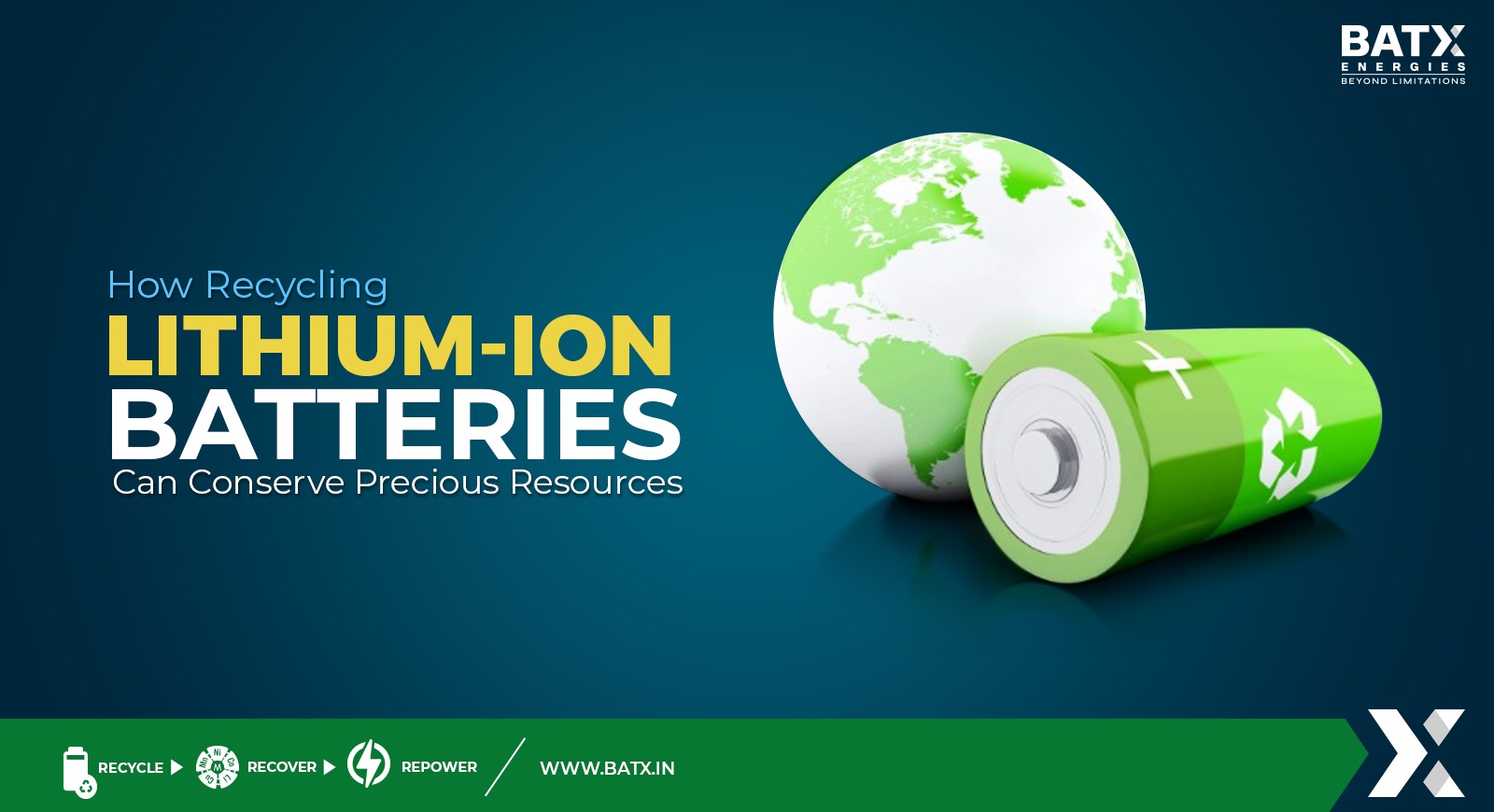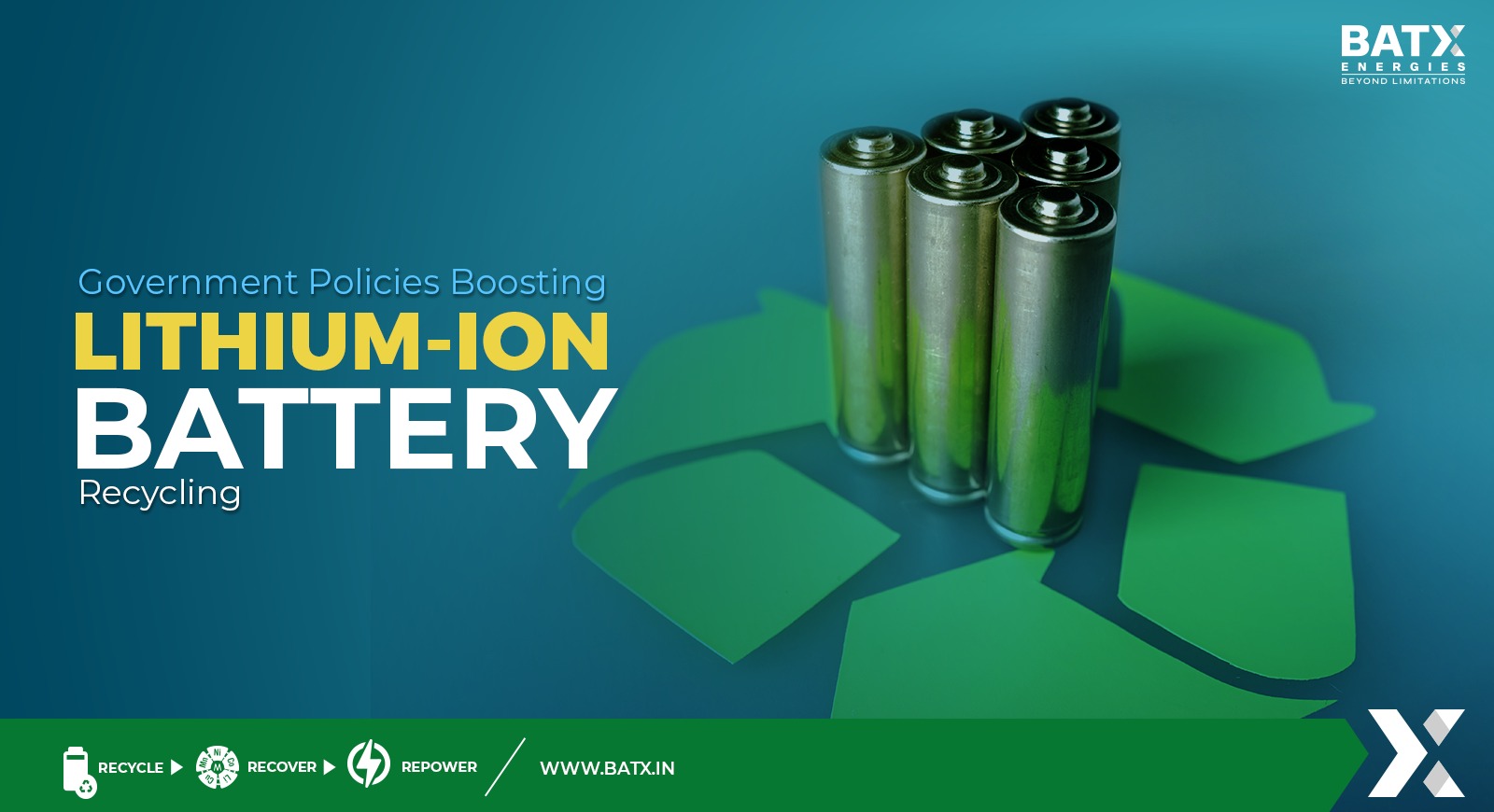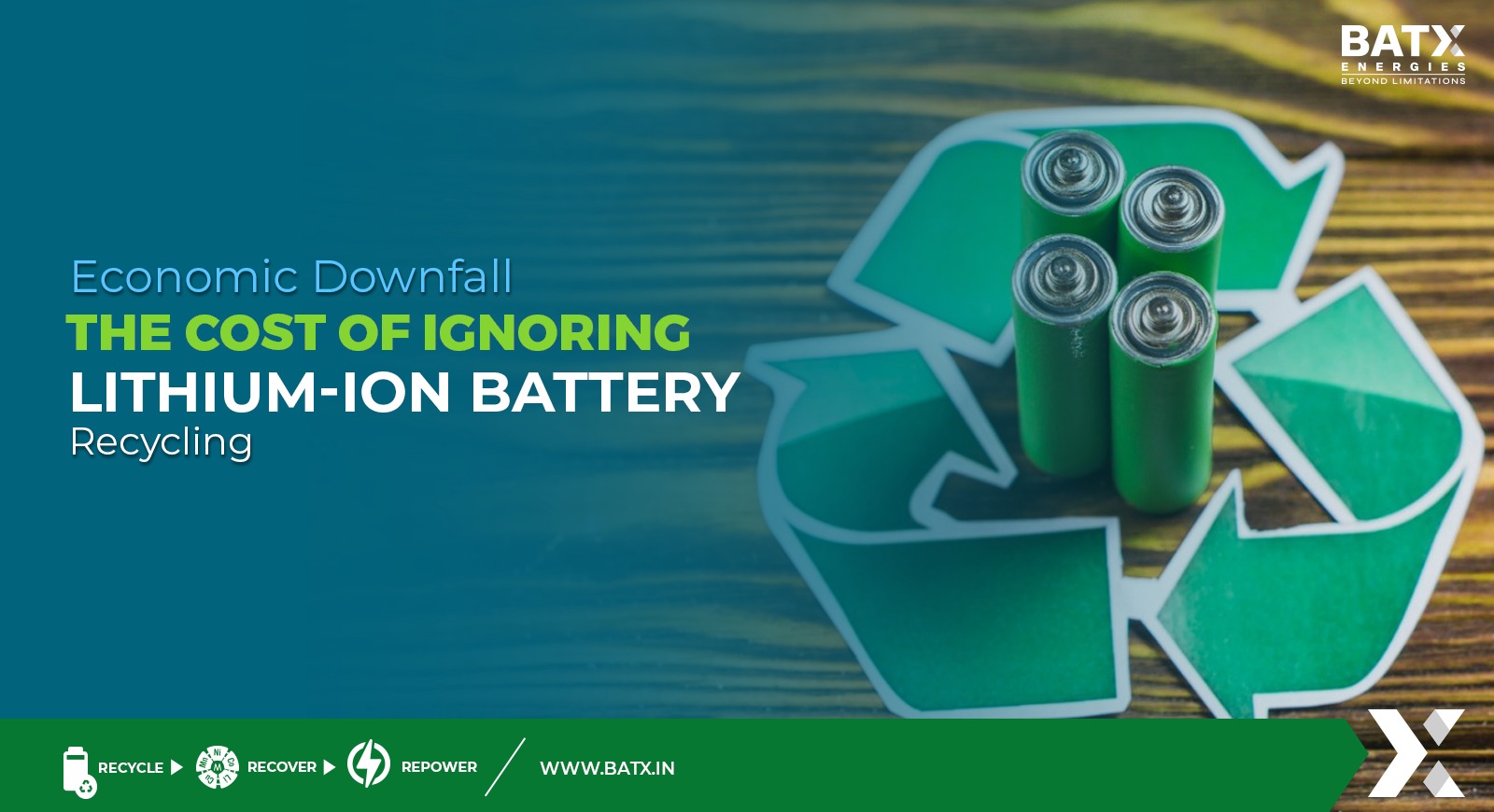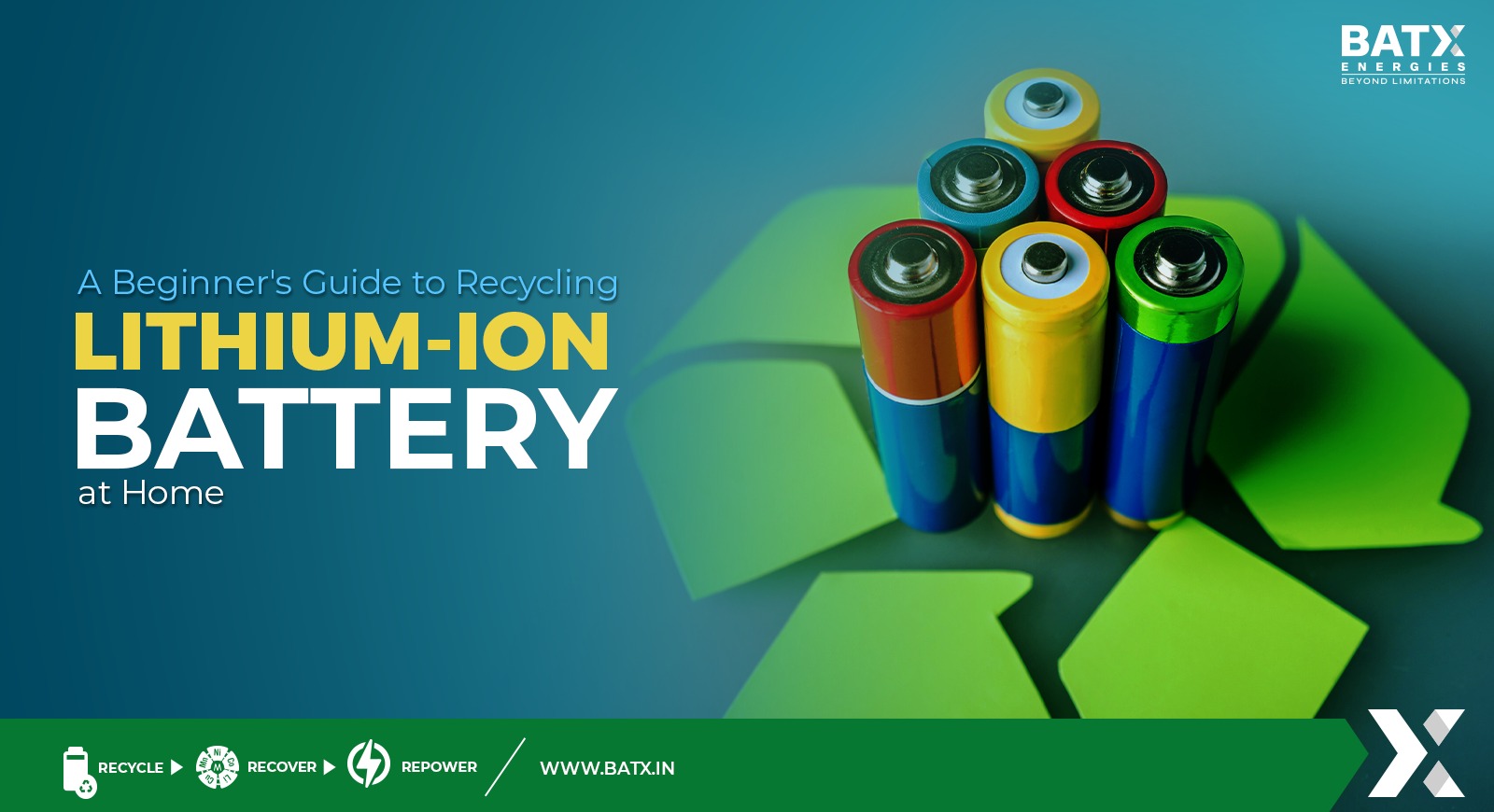With the ability of 95% recyclable, lithium-ion batteries conserve precious resources. The recycling of lithium-ion batteries promotes a sustainable and greener future. This blog covers the steps to conserve precious resources by recycling lithium-ion batteries.
Table Of Contents:
How Recycling Lithium-Ion Batteries Can Conserve Precious Resources
Rise Of Lithium-Ion Batteries
Environmental Challenge
Advantages Of Lithium-ion Batteries Recycling
Resource Conservation
Environmental Protection
Economic Opportunities
Waste Reduction
Steps To Conserve Precious Resources by Recycling Lithium-Ion Batteries
Collection
Sorting
Mechanical Crushing
Material Recovery
Purification
Responsible Disposal
How Recycling Lithium-Ion Batteries Can Conserve Precious Resources
Rise Of Lithium-Ion Batteries
The world is heavily relying on lithium-ion batteries. The use of lithium-ion batteries is increasing in every practical application. Let’s explore where lithium-ion batteries are used in practical life.
- Digital Cameras
Li-ion batteries are the powerhouse used in various mirrorless cameras and DSLRs.
- Pacemakers
The pacemakers with li-ion batteries have longer lifespans, hence rechargeable li-on batteries are commonly used in pacemakers.
- Smartphones and Laptops
Since lithium-ion batteries have low maintenance, higher energy densities, and durability, using this battery is commonly seen in smartphones and laptops.
- Watches
Even in watches, Li-ion batteries are used in small portions.
These applications are only a few examples where lithium-ion batteries are used. Li-ion batteries are used in almost every rechargeable device and are considered ideal for powering every device.
Environmental Challenge
Along with the rise of lithium-ion batteries, there are adverse effects on the environment. The Li-ion batteries contain toxic metals like cobalt, manganese, nickel, etc. After this battery reaches the end of its life cycle, people often dispose of it improperly. They are disposed of as ordinary garbage. When this garbage is dumped in a dumping area, the toxic metals can leak into nearby waterfalls and landfills. If this happens, it can cause severe effects on humans, animals, plants, and the whole ecosystem. Additionally, Li-ion batteries are likely to catch fire spontaneously. Hence, the improper disposal of batteries increases the risk of fires in landfills, further leading to inhabitant damage.
Advantages Of Lithium-ion Batteries Recycling
Lithium-ion battery recycling offers the following benefits.
Resource Conservation
Li-ion battery recycling conserves precious resources. These resources are further used to extract new Li-ion batteries. It reduces the need to dig the earth and conserve resources.
Environmental Protection
Discouraging the toxic metals and chemicals leaking into the environment, Li-ion battery recycling protects the environment.
Economic Opportunities
Li-ion battery recycling is a long process and requires many manpower. With the increase in battery recycling, many people can get employment opportunities.
Waste Reduction
Recycling Li-ion batteries means 95% recycled. If not recycled this will surely end up in landfills or waterfalls. Hence, Li-ion batteries are a good step toward waste reduction.
Steps To Conserve Precious Resources by Recycling Lithium-Ion Batteries
Let’s dive into steps to conserve precious resources by recycling lithium-ion batteries.
Collection
The collection is the first step to conserve precious resources by recycling lithium-ion batteries. Here, the Li-ion batteries are collected from various industries and households before they degrade their recycling ability.
Sorting
After collecting the batteries, they are sorted to separate from other electronic waste. This process ensures batteries undergo complete recycling, without contaminating any other materials.
Mechanical Crushing
Now, the batteries are shredded into smaller pieces, further helping to separate components such as nickel, lead, cadmium, etc. The shredded batteries make it easier to complete the recycling process.
Material Recovery
Recycling the Li-ion batteries using various chemical processes recovers the valuable materials as raw materials.
Purification
Any impurities obtained from metals are purified. This ensures high-quality raw materials for producing new batteries.
Responsible Disposal
The final step to conserve precious resources by recycling lithium-ion batteries is responsible disposal. Since only 95% of Li-ion batteries are recycled, 5% are waste that cannot be recycled or reused. The poorly managed waste degrades human health causing infectious and transmitting diseases. Additionally, it pollutes the ecosystem and destroys inhabitants, drastically causing Earth to suffer. Hence, after following the steps to conserve precious resources by recycling lithium-ion batteries, the waste is managed safely following local, state, and country regulations.
Conclusion
From collection to responsible disposal, following the steps to conserve precious resources by recycling lithium-ion batteries ensures safe recycling and preserves valuable resources. Li-ion battery recycling leads to a sustainable and greener future. So, why not take action and be part of responsible humans to reduce the environmental impact? Before recycling the batteries, remember to recycle them responsibly. Consider choosing a certified recycling company that follows the recycling rules and regulations. Hence, choosing Batx Energies won’t make you regret it. We ensure your batteries are recycled correctly, and together contribute to a sustainable future.



